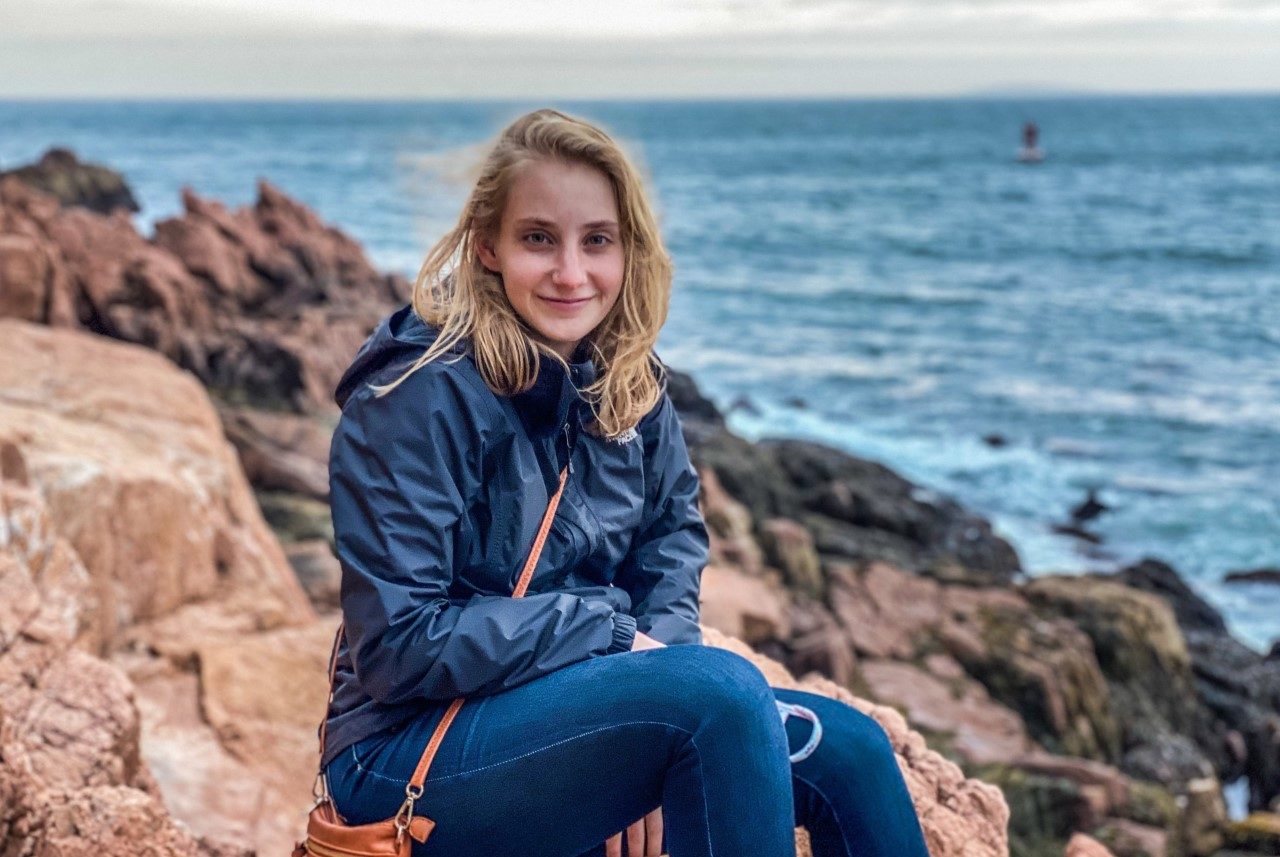What program did you graduate from?
I graduated from the Environmental Science and Policy program.
Why did you decide to pursue a graduate degree at Northeastern University?
I chose to attend Northeastern because the program offered a lot of flexibility regarding what courses I could take to fulfill requirements, how many classes I took each term, and when. I worked full-time in Rhode Island through most of my graduate program, so it was important for scheduling to be flexible.
I took many courses offered once a week in the evenings, making it easy to schedule my classes around work. The program also requires students to enroll in at least two courses, one from the College of Science and one from the College of Social Sciences and Humanities – but doesn’t specify which courses they should be (other than two program seminars). These requirements allowed me to tailor my courses to fill in gaps based on my previous experiences. For example, my bachelor of science is in wildlife biology, and I conducted research for several years before pursuing an advanced degree. I didn’t have much experience in policy, so I decided to enroll in various policy courses throughout the program to increase my knowledge.
What was your favorite course in your program? Why?
I have to say I enjoyed all the courses I took – they all allowed me to focus my work and projects on the subjects I’m most passionate about. However, if I had to choose a favorite, it would be Techniques for Policy Analysis. This course taught me about policies I’m not familiar with, such as housing and drug policy, and allowed me to do a deep analysis of Rhode Island’s current endangered species policies.
Did any specific faculty member help you excel in this program?
Benjamin Dittbrenner, the director of the program, was really helpful during my time at Northeastern. He only joined the program at the end of my first year but was always available to answer questions and give advice on classes, job applications, and career paths. I also really enjoyed his class, Ecosystem-Based Management, and we still keep in touch.
What are your future plans?
I currently work at the U.S. Environmental Protection Agency researching microplastics in marine environments, but I’m hoping to move into a position more geared towards wildlife policy, whether it be state or federal government or with a nonprofit organization.
How did your experience at Northeastern prepare you for your professional career?
My experience at Northeastern gave me a strong foundation in public policy that compliments my science background that I hope to use in my career moving forward. I have also gained essential skills in my field, such as statistics, GIS, and significantly improved written and verbal communication skills, making me a much better candidate for jobs in my field.
Do you have any advice for graduate students looking for work experience in similar fields?
Environmental science can be a challenging field regarding job availability and funding, but making connections is the best way to put yourself out there. If you’re in graduate school, use your professors and advisors as resources for resume writing, career advice, and relationship building! Participate in and present at conferences, reach out to people whose work you’re interested in, and advocate for yourself. Often, the best opportunities come from people you already know, so building connections is essential.

